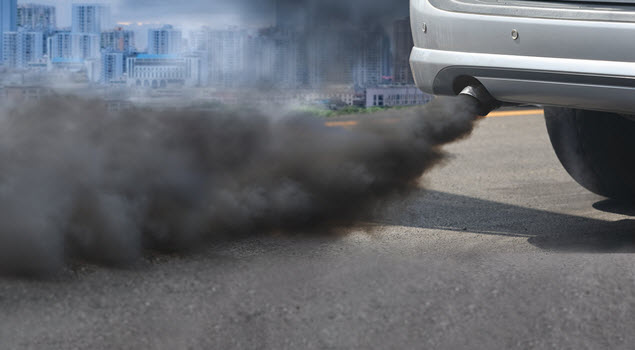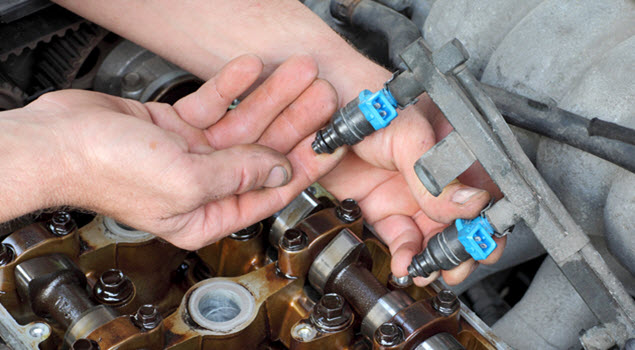The fuel pressure regulator (FPR) is an important component of any modern engine. It plays a vital role in regulating the pressure of the fuel being delivered to the engine. It works by regulating the flow of fuel from the fuel pump to the fuel injectors, based on the engine’s demands.
The regulator contains a spring-loaded diaphragm that responds to changes in fuel pressure. When the pressure on the diaphragm exceeds the spring pressure, the regulator opens a valve that allows excess fuel to flow back to the fuel tank. This reduces the pressure in the fuel rail and maintains a consistent fuel pressure to the engine.
The fuel pressure regulator is controlled by the engine control unit (ECU), which uses information from various sensors to determine the engine’s fuel requirements. The ECU adjusts the fuel pressure by sending a signal to the regulator to increase or decrease the flow of fuel to the engine, based on the engine’s needs. By maintaining the correct fuel pressure, the fuel pressure regulator helps to ensure optimal engine performance, fuel efficiency, and emissions control.
Look for these Indications of an FPR Failure in a BMW
- Poor engine performance: The engine may run roughly, idle poorly, or experience a lack of power when the FPR fails.
- Difficulty starting: A failing FPR can cause the engine to struggle to start or require multiple attempts to start.
- Black smoke: If the FPR fails and allows too much fuel into the engine, it can cause black smoke to emit from the exhaust.
- Fuel smells: A faulty FPR can cause fuel to leak or evaporate, which can create a noticeable gasoline odor. It is very important that you have your car inspected by a professional mechanic immediately if you start noticing this scent, as it can be very dangerous to have leakages of gasoline in your car.
- Decreased fuel efficiency: A failing FPR can cause the engine to use more fuel than usual, leading to decreased fuel efficiency.
- Check engine light: A malfunctioning FPR can trigger the check engine light to illuminate the dashboard.
The Most Common Reasons for a BMW Fuel Pressure Regulator (FPR) Failure
In a BMW, the regular can fail due to a number of reasons including wear and tear, contamination, electrical issues, and poor fuel quality:
- Normal Wear and Tear: Over time, the FPR’s diaphragm can wear out due to constant use. This can lead to a malfunctioning regulator that needs to be replaced.
- Contamination: If dirt, rust, or other contaminants get into the fuel system, they can clog the regulator and cause it to fail prematurely. This is more common in older BMW models.
- Electrical Issues: Some regulators are electronically controlled. If there is an issue with the wiring or electrical components, it can cause the regulator to malfunction. This can be due to faulty sensors or other electronic components.
- Fuel Quality: The quality of the fuel being used in a BMW can also impact the FPR. Poor quality fuel or fuel that has been contaminated can cause damage to the regulator. This can be due to impurities in the fuel or fuel with higher ethanol content than recommended.
- Excessive Heat: Fuel pressure regulators are often located in the engine compartment, where temperatures can reach extreme levels. Over time, this can cause the regulator to break down and fail.
- Improper Installation: If the FPR is not installed correctly, it can cause it to fail prematurely. This can be due to incorrect torque settings or not properly sealing the fuel lines.
Why Regular Maintenance is Important
Regular maintenance is crucial for the health and longevity of your BMW’s fuel system. The recommended service schedule includes regular fuel system maintenance as well as filter replacement, fuel injector cleaning, and fuel system inspections. Regular maintenance helps ensure that the fuel system is functioning optimally, which can help prevent FPR failure.
Woodinville Sports Cars Will Fix The Fuel Pressure Regulator Issues In Your BMW
If you notice any of the signs of a failing pressure regulator listed above in your BMW, bring your car to Woodinville Sports Car. Our technicians are highly trained with decades of experience in fixing BMW models. Our aim is to ensure that you always feel comfortable and safe while driving. We are pleased to serve the residents of Bothell, Kenmore, Kirkland, Mill Creek, Snohomish, Redmond, and Woodinville, WA. Call us now to book an appointment with us, or you can visit us today!





Recent Comments